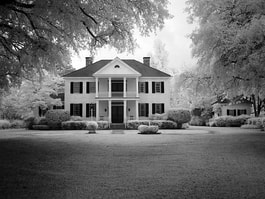 There are many different housing options available to us nowadays, something to suit everyone. One option is buying a pre-manufactured home. These types of homes are not like they used to be. There are many styles to choose from for a variety sizes and budgets. So, what are a few things to think about when considering this as an option for you? Remember that you are just purchasing the home, so you will need to find a place to put it. There are options when it comes to this, for example you could purchase the land, lease it on a land-lease community which is designed for manufactured houses, or you could also purchase the home and land together in a specific development. Whichever option you choose though, you need to make sure you are familiar with zoning laws, utility connections or any legal requirements etc. associated with the land. Make sure you thoroughly check the warranty. Its important to know because you want the home to be covered for transportation and installation and a manufacturers warranty might not cover these types of things. Keep in mind too, that if you fail to follow maintenance guidelines set out in your homeowner’s manual, you could void your warranty. Its is wise to have your home inspector do a thorough check of this kind of housing to make sure there are no defects you were unaware of. If you would like to schedule a thorough home inspection on a manufactured home or any other type of property, please feel free to contact us.
0 Comments
 While many new construction homes nowadays are designed to obtain the highest energy efficiency they can, what about older, historic homes? Although they were built before many energy saving devices were around, is it still possible for them to be energy efficient? A lot of the time, we associate old homes with being drafty and cold, but the truth is that historic houses were made to be energy efficient, in some ways, more so than even new homes. How can we say that? Look at a few features of these homes that make them automatically more energy efficient: They are often built using brick or masonry. These kinds of heavy duty construction materials make walls built with them very thick. This means they are better at retaining heat Modern homes today are frequently built to be aesthetically pleasing. The modern design usually incorporates more windows than is generally needed. In historic homes, windows were usually positioned to maximize light and provide good ventilation. They also were fitted with shutters or places for curtains and drapes. All of these provide a level of insulation which aids with energy savings. In warmer parts of the country (such as here in Central Florida), these older homes were built with features like exterior balconies, wide roof overhangs, porches and even well positioned trees. The homes exterior was often painted with lighter, heat reflective colors. All contributing to cooler temps indoors. We can see from this quick review, that if you have the pleasure of living in a historic home, it doesn’t mean you can’t be energy conscious. It might even be better than you thought
A home should be a place to feel comfortable and relaxed. When you are looking for a new home, you no doubt have these thoughts in mind. You also think about finding a home in the right area, one that will accommodate all your families desires and needs and all for the right price.
There are other factors you need to consider, however, when looking for the right home, so that you can avoid problems in the years to come. One such factor is proper grading (or slope). You might be thinking to yourself “I don’t even know what that is, let alone what the proper amount is”. But, its actually a very important thing to think about. Why is that? The following video will help you understand a little more about why having the correct amount of grading is important, as well as how much. We want your home buying experience to be a positive one, that is why we are here to help you navigate through the stressful home buying process. |
AuthorMike McFadden, Company Owner & Certified Master Home Inspector Archives
July 2024
Categories |
Lets Talk! (407) 630-4973

 RSS Feed
RSS Feed
